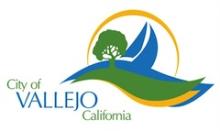Transcript: Community Broadband Bits Episode 222
This is episode 222 of the Community Broadband Bits podcast. Centennial, Colorado's Fiber Director Tim Scott joins the show to discuss conduit policy, dark fiber strategy, and Ting. Listen to this episode here.
Tim Scott: How do we create a more competitive environment and enable new entrants to look at the market and put together products and services, leveraging the city’s backbone that can create this new, competitive, compelling environment in Centennial?
Lisa Gonzalez: This is episode 222 of the Community Broadband Bits podcast from the Institute for Local Self-Reliance. I'm Lisa Gonzalez. In 2013, Centennial, Colorado voters chose overwhelmingly to opt out of the state's law that restricts local telecommunications authority. Since then, they've steadily advanced toward a plan to use their publicly owned fiber to bring better connectivity to the community. Last month, Internet service provider, Ting, announced that it would be partnering with Centennial to bring gigabit Internet service access via the city's publicly owned fiber-optic network. Tim Scott, the city's director of fiber infrastructure, joins Chris today to talk about Centennial's voyage from a new Denver suburb to a city that has the fiber to draw in a growing provider like Ting. He explains what the city has created and how, what providers are looking for, and offers more information about the new partnership. Now here are Chris and Tim Scott, director of fiber infrastructure from the city of Centennial, Colorado.
Christopher Mitchell: Welcome to another edition of the Community Broadband Bits podcast. I'm Chris Mitchell. Today I'm speaking with Tim Scott, the director of fiber infrastructure for the city of Centennial, Colorado. Welcome to the show.
Tim Scott: Morning, Chris. Thanks for inviting me.
Christopher Mitchell: I got it right, Tim Scott?
Tim Scott: Yeah, you did. You got it right. Good job.
Christopher Mitchell: The community of Centennial, I've actually been down in that area, in the Denver metro area. Can you tell us a little bit about it?



